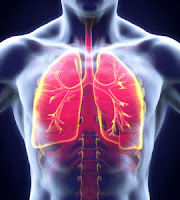Narcolepsy: What could be causing the sleep disorder?
 |
Image source: Everydayhealth.com
|
Aside from excessive daytime sleepiness, people with narcolepsy may sometimes experience cataplexy, sleep paralysis, hallucinations, interrupted nighttime sleep, or even insomnia. Unlike others, those who have narcolepsy fall into the REM sleep within 15 minutes compared to the usual 60 to 90-minute interval. The disorder can be classified into two categories: Type 1 (with cataplexy) or Type 2 (without cataplexy). Those who have cataplexy may sometimes experience the sudden loss of voluntary muscle control due to strong emotions. This symptom may sometimes be misdiagnosed as a seizure. However, the difference between the two conditions is that the person who experiences cataplexy remains fully conscious.
 |
Image source: Guardian.co.uk
|
Lisa M. Cannon, M.D., is a board-certified pulmonary disease and critical care physician with a private practice in Bergen County, New Jersey. For more reads on health and medicine, visit this page.



Comments
Post a Comment